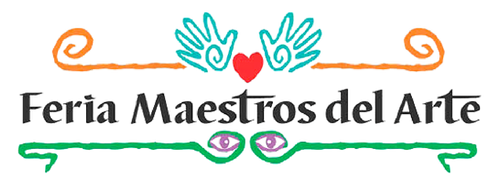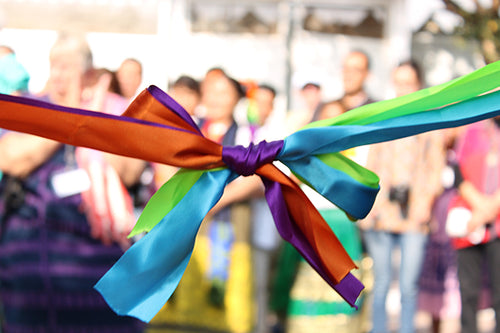
Centro Indígena Huichol
Huejuquilla el Alto, Jalisco
The goal of the Huichol Center is to build a sturdy bridge between tradition and future . . . a bridge that will allow the Huicholes to enter into the 21st century on their own terms, without destroying the spirit and substance of their ancient culture.
Just a few of the projects supported by the Center include:
--Free clinic
--Emergency medical care
--Educational scholarships
--Soup kitchen
--Bee-keeping demo site
--Organic gardens
--Cultural center
--Museum exhibits
--Artwork archives
--Jobs in the communities
--Artist training programs
--Native American tribal exchange
--Permaculture farm and internships
The Huichol people are a tribe of shamans and artists who have, until recently, lived undisturbed in the rugged Sierra Madre Occidental mountain range in the states of Nayarit and Jalisco, Mexico. They are one of the oldest living traditional people in the Western hemisphere.
Today approximately 8,000 still survive, keeping alive a nature-based and spiritual way of life now long extinct in most parts of the Americas. Due to the encroachment of the modern world, the core of Huichol traditional life is dissolving, and their ability to sustain their cultural identity is in grave danger. Missionaries, tourists lumber companies, agro-chemicals, alcoholism and abandonment of traditions are undermining their ability to prevail. However, there is still hope.
In 1975 UCLA anthropologist Susana Eger Valadez came to Mexico to conduct a month-long investigation of the Huichol culture. Today, she still remains on the scene. After marrying into the culture she is now mother of three. She wants to make sure Huichol culture can be found in places other than history books and so created the Huichol Center for Cultural Survival and Traditional Arts, of which she is the director.
The goal of this project has always been to facilitate the Huichol people with viable health and economic solutions for their future survival. The "Centro Indígena Huichol", strategically located in the remote town of Huejuquilla El Alto, Jalisco, is in close proximity to the homeland. The project provides artistic skill training and jobs on the home soil, and helps the Huicholes remain in their communities, thus avoiding mass migrations to far-off towns where they formally sought out jobs as field workers.
Virtually untouched for centuries, Huichol Indians took refuge from the Spanish conquest in the remote Sierra Madre mountain range. The Huicholes have no history of war. Rather than training for war, they train their hearts to open to the healing powers of love and to the celebrations of life through the seasons. Because of this, they are famous for their strong ceremonial tradition, rich mythology and incredible visionary artwork.
Primarily an agricultural people, the Huicholes are dependent upon corn, planting their fields along the steep slopes of their mountain homeland. Corn is life for the Huichol Indians. The yearly cycle of preparing the fields, planting, growing, and harvesting the corn is surrounded by religious ceremony, as is all of Huichol life.
When Susana first went among the Huicholes, she said that people would come up to her and try and wipe the white off of her skin. They had never seen an outsider before. This began to change in the 1970s, when good-intentioned government policies attempted to bring Huichol Indians into mainstream society. Roads, airstrips and half-baked social programs were part of the package. In exchange, all the Huichols had to do was leave their indigenous identities and embrace mestizaje - the Spanish-Indian mix that defines the mainstream Mexican identity.
Having seen what happened to Native American peoples in the United States, Valadez thought this was a very scary proposition for the Huicholes. It was unfair that one more culture was being threatened, especially one that had hung on for so long against all the forces of extinction that so many other tribes in the Americas have succumbed to.
Struck by the proliferation of disease in Huichol communities, Valadez started helping by convincing Beverly Hills doctors to donate medicines and supplies - then talking the Mexican government into flying planes to the US to collect the goods.
Susana also despaired at the poverty that drove many Huichol families to work in tobacco fields in Nayarit, where families were exposed to health threatening chemicals for meager wages. She discovered an alternative means of generating income while completing her thesis.
There is racism too against the Huichole. Children attending local schools were made fun of and told that they were inferior. But the kids who have gone through the Project's schooling are the smartest ones in the class.
The Center's programs run entirely off funds generated by selling Huichol art. Though it manages to pay their weekly budget, lack of serious funding has impeded Valadez from implementing wide-reaching programs to help stave off a continuing decline in Huichol culture due to poverty, alcohol and a modernizing Mexico that has little place for its native peoples' traditions.
She compares her fears to the life of Ishi, the last California Yahi Indian, who spent his last days in the University of California anthropology museum helping anthropologists and historians provide a record of his people. As she looks around her, sometimes she cries at the thought that in another 30 years, there could be no Huichol people around who remember their culture.
Shows such as Feria Maestros del Arte provide another venue for the Huicholes to sell their art and have their work seen by collectors, gallery owners, museums and the locals who live in our area.
In purchasing art from a Huichol Indian, you not only gain a beautiful piece of art, you also assist a dying culture to stand on its own feet by sustaining self-sufficiency. If you have never seen examples of the intricate Huichol beadwork set into beeswax, you are in for a sensory treat.
Calle Victoria #24
Huejuquilla el Alto, Jalisco C.P. 46000
www.patreon.com/thehuicholcenter
510 309 6403 WhatsApp

